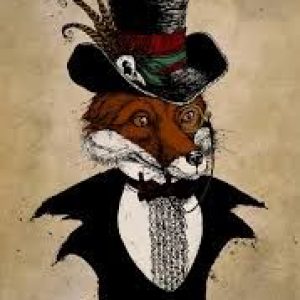
“We are accustomed, in our own day, to protests against the empire of machinery and eloquent yearnings for a return to a simpler day. In all this there is nothing new. Lao-Tze, who preceded Confucius and lived (if he lived at all) in the sixth century B.C., is just as eloquent as Ruskin on the subject of the destruction of ancient beauty by modern mechanical inventions. Roads and bridges and boats filled him with horror because they were unnatural. He speaks of music as modern high-brows speak of the cinema. He finds the hurry of modern life fatal to the contemplative outlook. When he could bear it no longer he left China, and disappeared among the Western barbarians. He believed that men should live according to nature — a view which is continually recurring throughout the ages, though always with a different connotation. Rousseau also believed in the return to nature, but no longer objected to roads and bridges and boats. It was Courts and late hours and the sophisticated pleasures of the rich that roused his ire. The sort of man that seemed to him an unspoiled child of nature would have seemed to Lao-Tze incredibly different from those that he calls ‘the pure men of old.’ Lao-Tze objects to the taming of horses, and to the arts of the potter and carpenter; to Rousseau the carpenter would seem the very epitome of honest toil. ‘Return to nature’ means, in practice, return to those conditions to which the writer in question was accustomed in his youth. Return to nature, if it were taken seriously, would involve the death by starvation of some 90 per cent of the population of civilized countries. Industrialism as it exists at the present day undoubtedly has grave difficulties, but they are not to be cured by a return to the past, any more than were the difficulties from which China suffered in the time of Lao-Tze, or France in the time of Rousseau.
Science as knowledge advanced very rapidly throughout the whole of the seventeenth and eighteenth centuries, but it was not until near the end of the eighteenth century that it began to affect the technique of production. There was less change in methods of work from Ancient Egypt to 1750 than there has been from 1750 to the present day. Certain fundamental advances had been slowly acquired: speech, fire, writing, agriculture, the domestication of animals, the working of metals, gunpowder, printing, and the art of governing a large empire from a centre, though this last could not attain anything like its present perfection before the invention of the telegraph and steam locomotion. Each of these advances, because it came slowly, was fitted in, without too much difficulty, to the framework of traditional life, and men were at no point conscious of a revolution in their daily habits. Almost all the things that an adult man wished to speak about had been familiar to him as a child, and to his father and grandfather before him. This had, undoubtedly, certain good effects which have become lost through the rapid technical progress of modern times. The poet could speak of contemporary life in words that had become rich through long usage, and full of colour through the embedded emotions of past ages. Nowadays he must either ignore contemporary life or fill his poems with words that are stark and harsh. It is possible, in poetry, to write a letter, but difficult to speak over the telephone; it is possible to listen to Lydian airs, but not to the radio; it is possible to ride like the wind upon a fiery steed, but difficult, in any known metre, to go much faster than the wind in an automobile. The poem may wish for wings to fly to his love, but feels rather foolish in doing so when he remembers that he could order an aeroplane at Croydon.
…The most essential characteristic of scientific technique is that it proceeds from experiment, not from tradition. The experimental habit of mind is a difficult one for most people to maintain; indeed, the science of one generation has already become the tradition of the next, and there are still wide fields, notably that of religion, into which the experimental spirit has hardly penetrated at all. Nevertheless it is this spirit which is characteristic of modern times as contrasted with all earlier ages, and it is because of this spirit that the power of man in relation to his environment has become, during the last hundred and fifty years, so immeasurably greater than it was in the civilization of the past.”
The full book can be found here.

